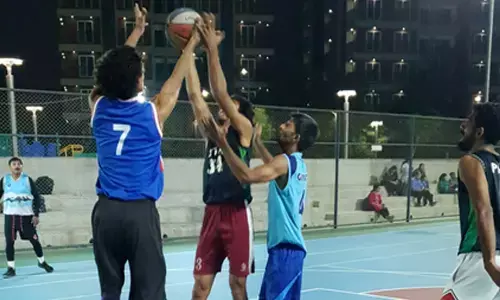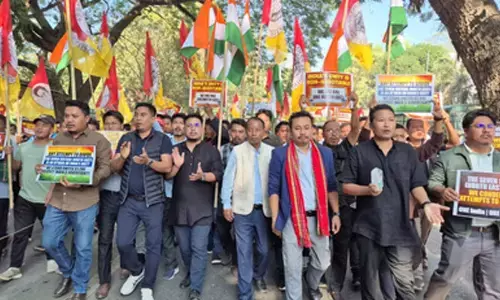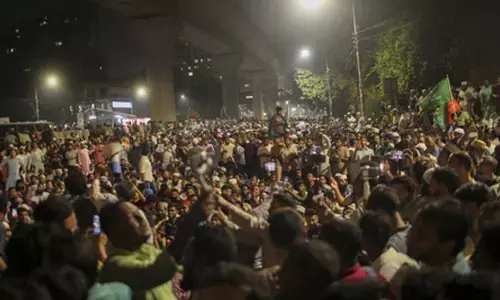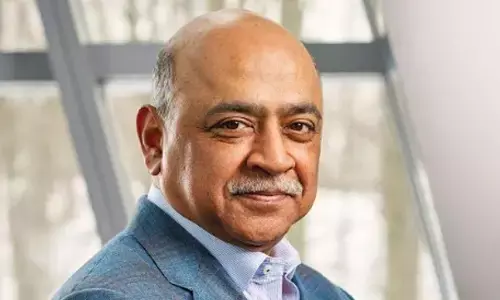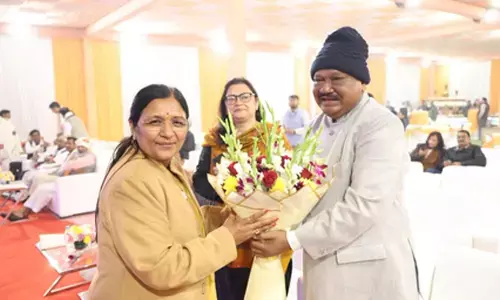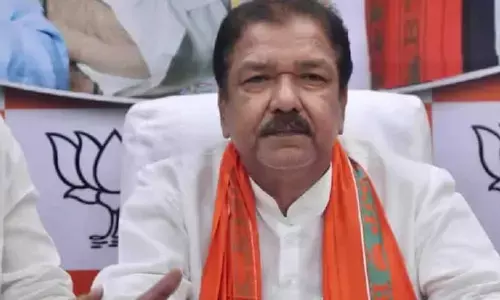Reading Manto doesn't know what is worthy in 20th century Urdu literature: Musharraf Ali Farooqi
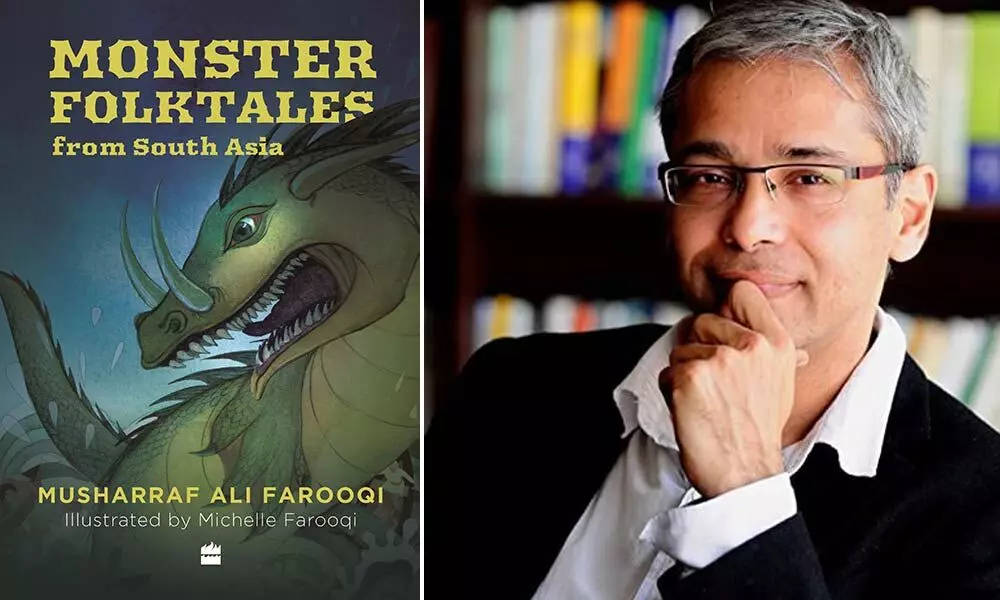
Reading Manto doesn’t know what is worthy in 20th century Urdu literature: Musharraf Ali Farooqi
We need more platforms both in Urdu and English
Beyond the underlying story of love, honour, and treachery, what his work 'Between Clay and Dust,' shortlisted for The Man Asian Literary Prize 2012 and longlisted for the 2013 DSC Prize for South Asian Literature, stood out for were the silences it evoked long after the last page had been turned.
'Monster Folktales from South Asia' (HarperCollins India), written by Pakistani author Musharraf Ali Farooqi and illustrated by Michelle Farooqi, is his latest book for youngsters. He says the plan was to identify a monster from local tradition and present the story using a 'overcoming the Monster' theme. "Because all of the stories are from Pakistani provinces, I aimed to involve schoolchildren from all around the country." "What child wouldn't want to be able to brag about having a local monster and a local hero?" says this novelist and translator, who is also the creator of the interactive storytelling application "Storykit."
When you ask him why folktales are vanishing from children's life over time and in the face of many entertainment venues, he criticises the modern school as it exists now. He believes that story involvement does not fit well into the testing-heavy approach of modern education, hence there is little emphasis on storytelling. "The continual academic testing also eliminates the after-school downtime that youngsters used to have. Children now have more internet entertainment options, but they are fundamentally different from storybooks in form. Some of them employ characters and story-like elements, but they are more akin to the testing systems employed in schools in terms of shape and intent. They're made for continuous play, demanding the player to keep moving forward. They forbid a child from pausing, idling, or thinking. They are the polar opposite of the kind of engagement that children can have with books."
Given that contemporary English literature from Pakistan has attracted a large readership in India over the last two decades, he believes that one factor for readers in India is a natural curiosity about lives and stories from a common culture, which can only be accessed through books and other forms of media. "This consciousness is missing, even in Pakistan, where people think that reading Manto is enough to know what is worthy in twentieth-century Urdu literature," he says, adding that more translations from twentieth-century Urdu literature are needed to demonstrate the literary backdrop in which contemporary works, whether in Urdu or English, are being written. It's a tragically erroneous perception of Urdu literature in the twentieth century.
"Urdu literary magazines like 'Aaj' have a tradition of publishing contemporary Indian writers in Urdu translation, and we need more such platforms both in Urdu and English," he says, adding that Pakistanis need to read more Indian literature, particularly translations from the many regional languages.
Even as Indian publishers have begun to publish more translations into English from various Indian languages that are winning major literary awards in India, the author believes it is exciting to witness this development. "Through their outstanding translations of twentieth-century Indian literature, my friends, the translation juggernaut Arunava Sinha and Daisy Rockwell, are making extremely important contributions to international literature." Similarly, "I believe that translating the many accomplished works of twentieth-century Urdu literature, which are not as much a part of the literary conversation today as they should be, will result in a greater and more meaningful engagement with Urdu literature. The greatest and only option to reach an international audience for our writing is through translation."
The author, who constructed the 'Urdu Thesaurus' (urduthesaurus.com) during a five-year period, recalls that in his work as a translator of traditional Urdu works, he frequently came across words that were not contained in normal dictionaries. "I started collecting dictionaries about fifteen years ago so that I could rely on them for the many rare words I encountered in my work. Dictionaries are often large and cumbersome, and I frequently desired for an online dictionary to make my own work easier. Finally, I made the decision to do it on my own. Because synonyms were a big element of the project, I decided to start with a thesaurus. In an electronic database, there are fewer fields to fill out. I'm proud of the Urdu Thesaurus's 'potential synonyms' idea. However, it is still a work in progress. It will be finished when it includes a dictionary of antonyms and word definitions."
He emphasises the importance of rethinking how languages are taught in Southeast Asian countries, stating that traditionally, after children had mastered their alphabet and speaking, they worked with story texts to gain language proficiency. Once you've done that, the world of information genuinely opens up to you. "Short stories from the Panchatantra, as well as parables from Gulistan and Saadi's Boostan, were all used to teach." A story can contain a vast amount of information. And this tidbit of information is simple to grasp and remember. We have moved away from this form of training today. "I wish to resurrect it in some manner because I learned to read stories rather than textbooks taught in school," says the author, whose most recent novel, 'The Merman and the Book of Power: A Qissa,' was intended to be a trilogy. "Right now, I'm working on the next two books," he says.









